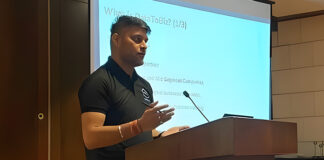All
- All
- Agriculture
- AI
- AR & VR
- Automotive
- B2B
- BFSI
- Blockchain
- Career
- Cybersecurity
- D2C
- Design
- Digital Marketing
- Drone
- Education
- Employee Advocacy
- Energy
- Gadgets
- Health
- Healthcare
- Hot Topics
- Industry
- Innovation
- Interiors Design
- IoT
- Leaders Column
- Lifestyle
- Manufacturing
- Marketing
- Press Release
- QA
- Retail
- Security
- Technology
- Telecom
- Travel & Hospitality
More
Dusit Foods joins Thai Airways to expand the success of the...
Bangkok, 8 May 2025 – Bangkok, Thailand – Dusit Foods Co., Ltd., a subsidiary of Dusit International, one of Thailand’s leading hotel and property...
SHOEGR: A Smart New Way to Take Care of Your Shoes...
The Indian footwear market is growing fast—not just in fashion and manufacturing, but also in shoe care. More people today want to keep their...
Leaders Column
Press Release
Dusit Foods joins Thai Airways to expand the success of the ‘Streets to Sky’...
Bangkok, 8 May 2025 – Bangkok, Thailand – Dusit Foods Co., Ltd., a subsidiary of Dusit International, one of Thailand’s leading hotel and property...
Record investments of €17.3 billion in the last twelve months boost Iberdrola’s profit in...
Record investment: €17.3 billion in the last 12 months
- In the quarter, investments grew by 14% to €2.720 billion, 65% in the United...




















